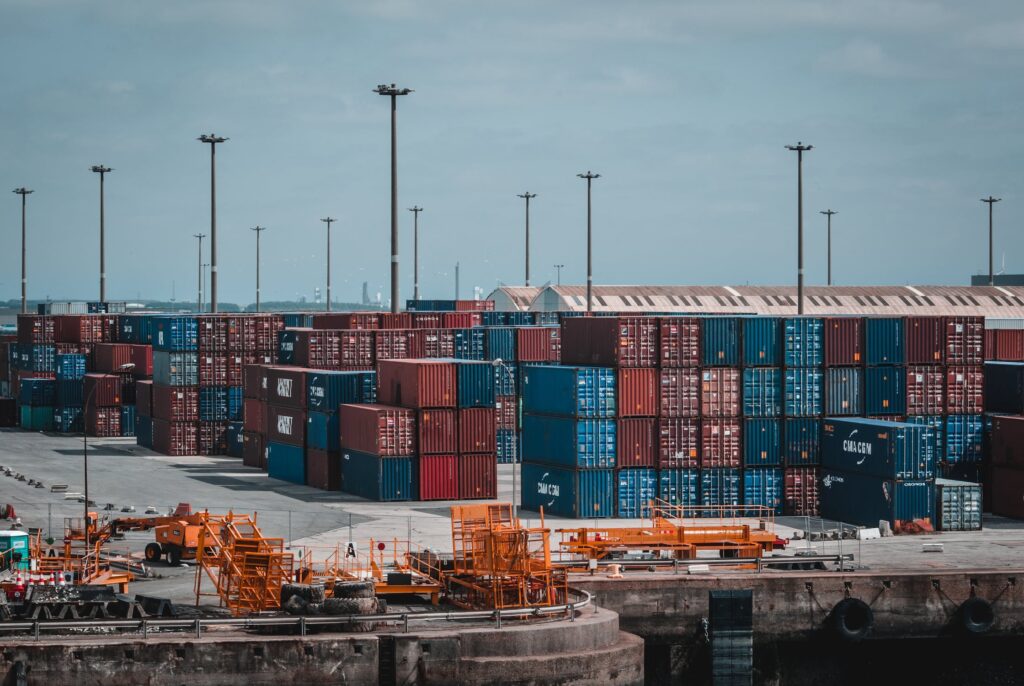
Image credit: Pexels
Entering the freight transportation industry is like setting off on an adventure at the heart of global commerce, where goods movement shapes economies and connects nations. The significance of this journey can be seen through its steady growth, from $15.65 billion in 2022 to $16.52 billion in 2023 with an impressive CAGR of 5.5%.
This surge in the global freight and logistics market demonstrates its central role and promising prospects, making now an excellent time to consider a career in this dynamic sector.
Understanding this fast-paced field, whether as a recent graduate exploring career options or an experienced professional considering switching, is critical. From diverse career paths and the global impact of your work to technological advancements and environmental considerations, in this blog post, we unpack seven key aspects that will equip you with the insights needed to navigate and thrive in the world of freight transportation.
Diverse Career Paths
Navigating the expansive landscape of the freight transportation industry opens doors to a myriad of career possibilities. This dynamic sector caters to a broad spectrum of roles, accommodating individuals with diverse skills and interests.
Whether you’re drawn to the precision of logistics coordination, the strategic insights of supply chain analysis, or the hands-on experience of truck driving, the industry is your canvas for growth and specialization. Discovering the right opportunity is key, and today’s digital era offers various avenues for job seekers.
For instance, owner operator forums provide valuable insights into available positions, allowing individuals to connect with industry professionals, share experiences, and explore potential career paths. These platforms serve as virtual hubs, fostering collaboration and aiding in the pursuit of a fulfilling career within the expansive realm of freight transportation.
Global Impact
Engaging in the realm of freight transportation extends beyond the mere physical movement of goods. It’s a dynamic involvement in the global exchange of commodities. Beyond the basic logistics of transporting products from one location to another, this industry acts as a catalyst for international trade and economic expansion.
Professionals within this field serve as anchors, connecting businesses and consumers on a worldwide scale, influencing economic landscapes, and fostering global collaboration. If your interests align with understanding the intricate web of the global economy, embarking on a career in freight transportation not only promises professional fulfillment but also positions you as a key contributor to the interconnectedness of economies across the globe.
Technological Advancements
The freight transportation industry is undergoing a significant technological transformation. Automation, artificial intelligence, and data analytics are revolutionizing how goods are moved, tracked, and managed.
Aspiring professionals should be prepared to embrace technology and stay updated on the latest advancements. From smart logistics solutions to autonomous vehicles, understanding and adapting to these innovations can open new avenues for career development.
Regulatory Landscape
One of the challenges in the freight transportation industry is navigating the complex regulatory landscape. Different regions and countries have varying regulations governing transportation, trade, and safety standards.
Professionals in this field must stay informed about the latest changes and compliance requirements to ensure the seamless movement of goods while adhering to legal standards. This knowledge is crucial for roles in logistics, supply chain management, and regulatory compliance.
Adaptability is Key
The nature of the freight transportation industry requires individuals to be adaptable and resilient. From dealing with unforeseen weather conditions to navigating geopolitical challenges that can impact international trade routes, professionals in this field must be prepared for unexpected disruptions.
Developing problem-solving skills and the ability to adapt to changing circumstances will contribute to a successful and fulfilling career in freight transportation.
Collaboration and Communication
In the dynamic field of freight transportation, effective communication and collaboration stand as indispensable pillars for a thriving career. Professionals routinely engage with diverse stakeholders—truck drivers, warehouse personnel, customs officials, and clients—necessitating robust interpersonal skills.
Clear communication is paramount, ensuring the timely and client-aligned delivery of goods. Furthermore, the collaborative spirit within the industry proves pivotal in overcoming challenges that may surface during the transportation process. The ability to work seamlessly with a spectrum of contributors reflects not only the professionalism of individuals but also underscores the industry’s commitment to delivering excellence through harmonized efforts.
Environmental Considerations
As the world becomes increasingly conscious of environmental issues, the freight transportation industry is also evolving to reduce its carbon footprint. Sustainable practices and eco-friendly initiatives are gaining prominence.
Professionals entering the industry should be aware of the growing emphasis on environmentally responsible transportation solutions. This awareness not only aligns with global sustainability goals but also positions individuals for roles that contribute to creating a more sustainable and responsible freight transportation sector.
Final Thoughts
A career in the freight transportation industry offers a dynamic and impactful journey for individuals passionate about the movement of goods, global commerce, and logistics. Understanding the diverse career paths, global impact, technological advancements, regulatory landscape, adaptability, the importance of collaboration and communication, and environmental considerations are crucial for success in this field.
By staying informed, embracing technological advancements, and cultivating a mindset of adaptability, aspiring professionals can contribute to the efficient and sustainable functioning of the freight transportation industry.

